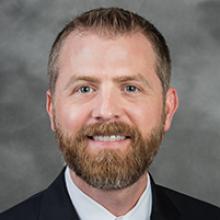Helping Displaced Workers Find New Pathways in the Future of Work

Our fast-changing economy poses unique issues for displaced workers—people with work experience whose jobs disappear due to downsizing, automation, obsolescence, and shifts in buying habits. The COVID-19 pandemic and resulting economic challenges have exacerbated these issues, expanding job losses and the need to retrain individuals for new careers and industries. The stark financial hardships of unemployment also have highlighted the need to help workers in at-risk jobs retool.
At a time of historic income inequality, millions of adults without college degrees are losing or quitting their low-wage jobs, while viable careers for those without postsecondary credentials are vanishing. Chronic joblessness is also rising, as nearly 2.4 million Americans have been out of work for a year or longer, even as unemployment rates continue to fall. This suggests that many are choosing to drop out of the labor force.
Our current workforce development ecosystem is not built to serve displaced workers well. Most traditional education and training programs focus on building occupational skills from the ground up, assuming little relevant background or technical knowledge. They are less efficient for workers with significant job experience, transferrable skills, and potentially more modest skill gaps to fill. Few are geared toward helping individuals get reemployed quickly, as many take months or years to complete—a significant barrier to participation for displaced workers with pre-existing financial responsibilities. Moreover, the research evidence on programs specifically designed to help displaced workers, such as the Workforce Innovation and Investment Act (WIOA) and the Trade Adjustment Act (TAA) suggests that they yield limited benefits for the lucky few who access these services.
PROMISE Center researchers are developing a proactive knowledge- and field-building agenda to discover and significantly expand the availability of effective supports for displaced workers. We are beginning with a comprehensive landscape review to assess the existing knowledge base on dislocated worker needs and service approaches. We will also seek to identify promising strategies to help these workers avoid job loss, quickly reconnect to employment, and/or offset their losses from dislocation. We are investigating approaches that hold promise, such as competency-based education programs that award credit for previously learned skills; and employer-training collaborations that offer workers opportunities to proactively advance their skills in anticipation of industry shifts.
Displaced Workers Landscape Review
Beginning in late fall 2021, the PROMISE Center team reviewed research reports, academic studies, and other materials to identify the current state of the evidence on displaced workers and programs aiming to serve them, with a specific focus on how displacement differentially affects communities of color. This landscape review provides an analysis on the effectiveness of programs that target displaced workers, identifies important questions on how to best support this population, and provides suggestions for further tailoring programs and practices to meet displaced workers’ needs.
Key Findings
- Displaced workers can spend significant lengths of time in unemployment. Black workers have historically been disproportionately affected by displacement as they are often among the first to be fired during economic contractions and are reemployed at significantly lower rates than white, Asian, and Latino workers.
- Displaced workers are often paid less at their new jobs and earnings losses are greater among individuals with low initial wages.
- There has been much federal investment aimed at supporting displaced workers, but programs typically are not tailored to displaced workers specific needs and often resemble those for the general unemployed population.
The PROMISE Center works to develop, build, and measure the impact of innovations that can increase economic opportunity and mobility in the U.S. at scale. The PROMISE Center is directly supported by the AIR Equity Initiative, AIR’s $100+ million five-year investment to advance equity in several important areas: workforce development, education, public safety and policing, and health.


